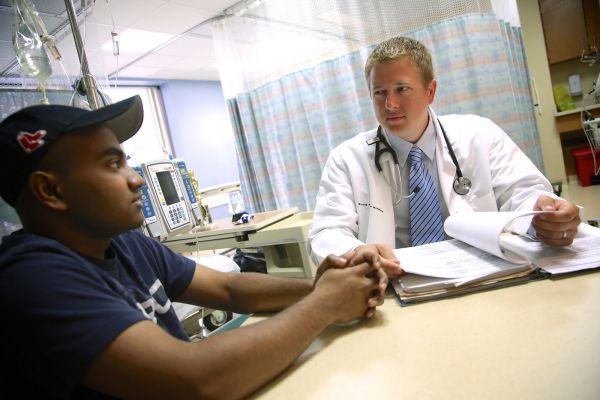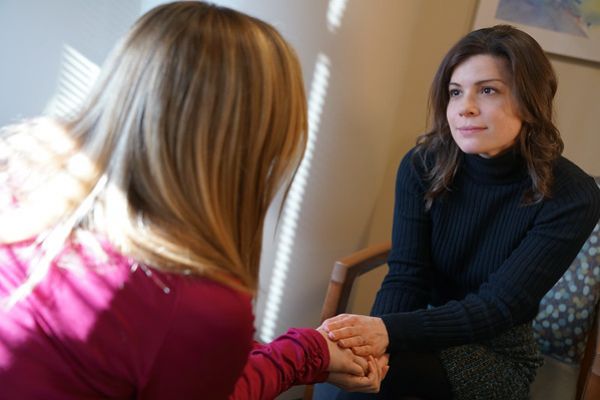It’s a common feeling among cancer patients — the disease has been eradicated and remission has been achieved, but relaxation can sometimes seem impossible.
Instead of feeling relieved, patients can be struck with a crippling fear that the cancer isn’t actually gone. Despite what they have been told by their clinical care team, the patient may find it hard to believe that treatment is over, or may worry that cancer may once again reappear at any time.
Why do some patients feel this way? What help is available for those who experience these thoughts? Glenn Frost, LCSW-R, ACSW, a Medical Social Worker on Roswell Park's Psychosocial Oncology team, joined Roswell Park Cancer Talk for a Q&A about fear of cancer recurrence.
Q: How common is fear of cancer recurrence?
A: Probably a lot more common than people would care to admit. So many patients are laser-focused on beating their disease. It becomes their singular goal and all they want is to reach the point where their doctor says, “I don’t have to see you for at least a year.” For many, those words provide unimaginable relief, however others may panic. They’re hit with the realization that they are no longer being monitored on a consistent basis and no longer being given regular care and attention. That’s when fear of recurrence sets in.
Q: How can you be sure that someone is experiencing this fear?
A: It’s impossible to know unless a patient tells you. However, from their perspective, it would be anything that deviates from regular functioning, such as changes in appetite or sleep patterns, inability to focus at work, or being unable to remember driving home. If routine scenarios are masked by frightening or worrisome thoughts, or you’ve become hypersensitive to normal bumps and bruises, afraid that everyday joint pain or headaches may be the start of cancer recurrence, counseling can be helpful.
Q: How important is it to recognize that this fear is normal?
A: Very important. I try to normalize fear of cancer recurrence as much as possible ahead of time. To be honest, I sometimes get concerned with patients who have completed treatment and tell me they have never had these thoughts, as it is such a common, and normal, reaction.
Q: Is it important to pursue help for fear of recurrence right away?
A: If someone is concerned about his or her cancer coming back, it is never too soon to let us know. A doctor or social worker would be more frustrated to hear someone say they’ve been worrying about recurrence for six months, or even a day, and never told anyone. If you find yourself frightened about recurrence, please don’t hesitate to contact our Psychosocial Oncology department immediately.
Q: How can Roswell Park’s Psychosocial Oncology department help?
A: The door to our office is always open for both inpatients and outpatients. I always give people my card following treatment and tell them to please call me if they feel are struggling with this issue. Even if it’s months or sometimes years after remission, a cancer diagnosis stays with you and becomes a part of your life.
Q: What advice do you give people who may be suffering from fear of cancer recurrence?
A: It may seem counterintuitive, but I actually tell people to embrace their fear, because the more you fight it and the more you work to resist it, the more the fear pushes back. So just invite it in, take a step back and ask yourself what you’re really afraid of. Think logically about where your fear is coming from and recognize that this is a completely normal reaction that many other people experience. If that doesn’t reduce your anxiety, call your Roswell Park physician and ask for a referral to our department. We can help you.
Providing care to patients and families
The Psychosocial Oncology department at Roswell Park offers services to all patients and families. Please call 716-845-8022 for more information.
Learn more


